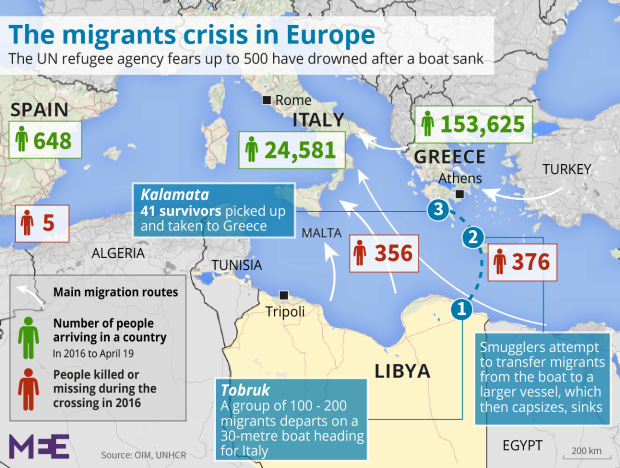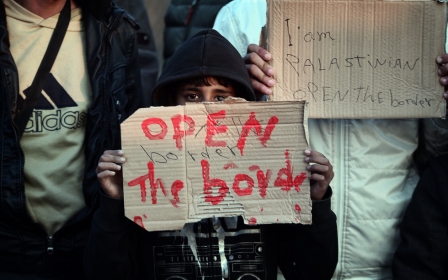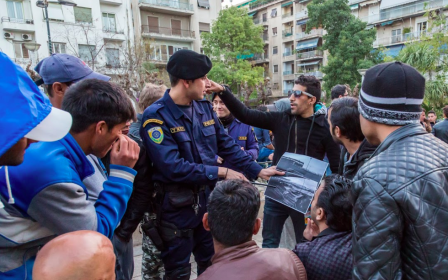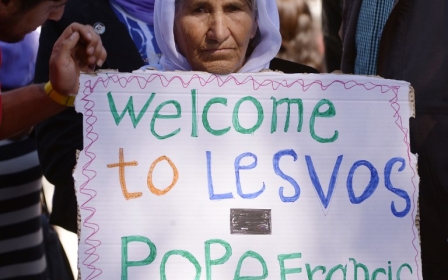UN fears 500 people died in mass drowning off Libya coast
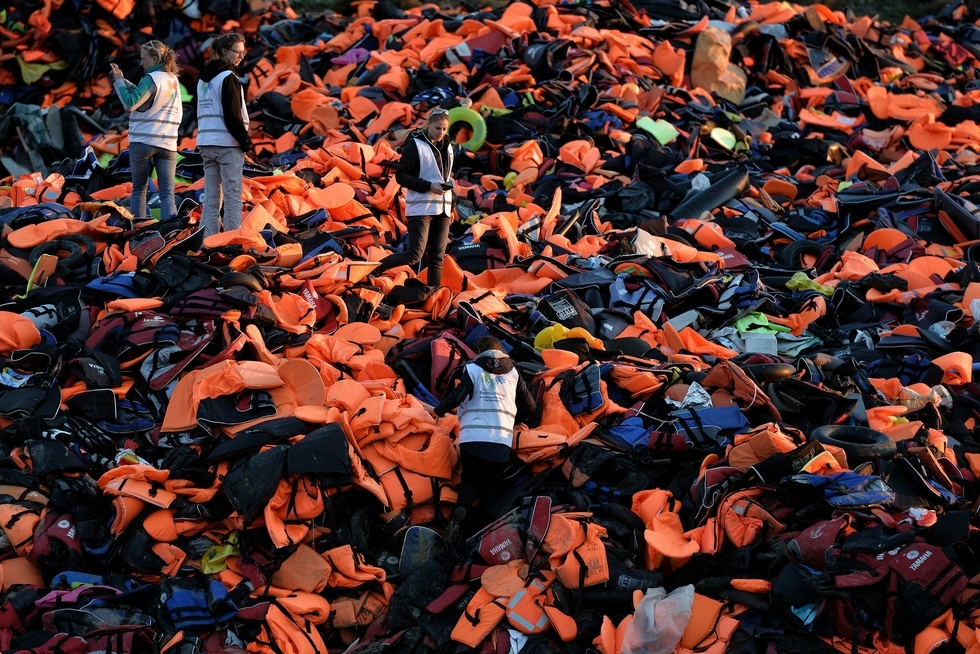
As many as 500 migrants are feared to have drowned in the Mediterranean as traffickers crammed people onto an already overcrowded ship, causing it to sink, the UN refugee agency said on Wednesday.
UNHCR spokeswoman Carlotta Sami said in a statement that survivors from Somalia, Sudan, Ethiopia and Egypt rescued from a small boat had described seeing "a large shipwreck that took place in the Mediterranean Sea claiming the lives of approximately 500 people".
The survivors - 37 men, three women and a three-year-old child - said between 100 and 200 people had set off from near Tobruk in Libya in a large, unseaworthy vessel.
The agency said: "After sailing for several hours, the smugglers in charge of the boat attempted to transfer the passengers to a larger ship carrying hundreds of people in terribly overcrowded conditions."
"At one point during the transfer, the larger boat capsized and sank."
The survivors drifted at sea before being spotted and rescued on 16 April and arrived the following day in Kalamata, in Greece, the UN agency added.
It said the date of the sinking was still unclear, and gave no information about who rescued the migrants.
However, reports of the mass drowning first emerged on Monday, when the Somali government said that the capsized boat had set sail from Egypt.
Monday was the anniversary of one of the worst disasters in the Mediterranean in recent times, when an estimated 800 migrants drowned off the Libyan coast after their boat collided with a merchant vessel attempting to rescue them in April 2015.
Thousands of people have died trying to reach the European mainland from either North Africa or the Greek islands.
More than 3,700 people died in 2015 trying the make the perilous crossing over the Mediterranean, with 761 recorded as dead or missing in 2016.
Refugee agencies fear the North African route may become the busiest after the EU cut a deal with Turkey to take back migrants who had arrived in Greece.
Middle East Eye propose une couverture et une analyse indépendantes et incomparables du Moyen-Orient, de l’Afrique du Nord et d’autres régions du monde. Pour en savoir plus sur la reprise de ce contenu et les frais qui s’appliquent, veuillez remplir ce formulaire [en anglais]. Pour en savoir plus sur MEE, cliquez ici [en anglais].


